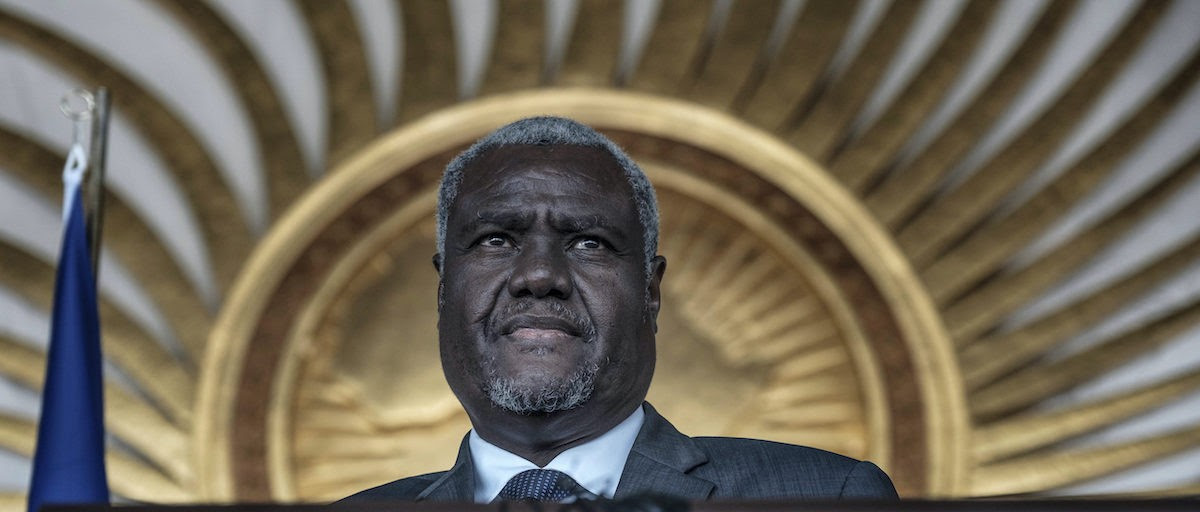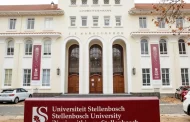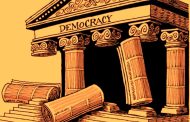There is no knowing what the result of an Africa wide Vox Populi would say on what the African Union (AU) has brought to the table in terms of the African agency and world politics since it replaced the organisation of African Unity, (OAU). It is doubtful if the scorecard will be an enviable one from the people downstairs. And even from the Obasanjos, Mbekis and Alpha Konares (of Mali) who crafted it. It is thus the aptness of the interview with the out-going/in-coming Chairperson of the African Commission, the experienced Algerian diplomat, Ambassador Moussa Faki Mohammed. Although the Johannesburg based Institute of Security Studies, (ISS) is an elite think tank, it did raise a number of pertinent questions in the interview cut from its website in the week the AU summit, February 6-7th, 2021. ISS’s own introduction to the interview runs as follows: The African Union (AU) Assembly is expected to elect high-level officials to lead the AU Commission (AUC) during its upcoming summit on 6–7 February 2021. Moussa Faki Mahamat, the chairperson of the AUC since 2017, is currently the only candidate running for the position. The Institute for Security Studies’ PSC Report asked Mahamat about his plans.
Firstly, why are you the only candidate running for the position of AUC chairperson? Are you confident of getting a two-thirds majority under these circumstances?
First of all, I would like to thank the Institute for Security Studies for its partnership with the AU, providing timely research-based analysis on African peace and security issues.
To answer your question, I have been encouraged to run for a second term by many African heads of state. A majority declared their support, which is a great honour for me. I imagine many member states are at least partially satisfied with what I did and they hope I will do better during a second term as chair of the AUC.
I am not the one who decides that I am the only candidate for the position. These decisions belong to the member states. I am aware some have tried to suggest that this is not a democratic process. It has to be clear that the opportunity for member states to submit candidates for the position was open for months. No country, except Chad, has presented a candidate for the position. It is therefore member states that decided that I become the only candidate to run for the chairmanship. We cannot impose on member states to submit candidates.
It has to be clear that the opportunity for member states to submit candidates for the position was open for months
As for getting a two-thirds majority, I have to say, as you may guess, that an election is never won until it is won. But I have no reason at all not to trust our heads of state who declared their full support for me. That is why I am optimistic.
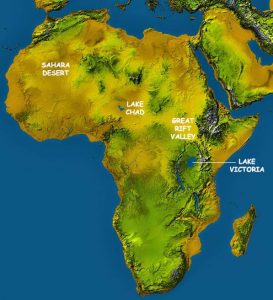
This is what the late Ali Mazrui would call the ‘Garden of Eden in decay’. It has got everything but it cannot get out of marginality
In your view, what are the major successes you have registered as chairperson of the AUC in the last four years?
It is always difficult for one to assess one’s own achievements. I would also like to take this opportunity to thank all those who supported me in the last four years. All I have achieved has been in collaboration with dedicated colleagues who worked night and day, as duty called. Member states also engaged my office with an open-door policy, a key factor for all that we have accomplished in the last four years.
I am particularly proud to have contributed to the success of two major AU flagship projects. These are the institutional reform process and the African Continental Free Trade Area (AfCFTA), launched on 1 January 2021 under the auspices of its champion President Mahamadou Issoufou of Niger. I am confident the institutional and financial reform process under the leadership of President Paul Kagame of Rwanda will make the organisation more efficient, effective and independent in implementing its mandate.
With a population of 1.2 billion people, Africa’s economic integration is another venture that promises to fulfil the vision of the founding members of the Organization for African Unity (OAU) for a united, peaceful and prosperous Africa. So far, 54 members out of 55 have signed it and 35 have ratified it. We expect more countries to ratify the agreement in the coming days. These have been key milestones. In relation to this, a protocol on freedom of movement and rights of establishment was signed in 2018. This will facilitate the free movement of Africans within the continent. The establishment of the Single African Air Transport Market and the Continental Blue Economy Strategy is also geared towards ensuring the integration and sustainable development of Africa. Progress registered in these spheres has been undeniably a success story in the last four years.
We have also been part of initiatives to mitigate and resolve crises in Africa. Some of these include Sudan, South Sudan, Somalia, Mali and the Central African Republic, as well as continual efforts to mobilise support for the fight against terrorism in the Sahel and the Lake Chad Basin. We have also provided significant support to electoral processes in Africa.
More than anyone, I am aware of the limitations the AU is facing in silencing the guns. This does not mean we did not face challenges and setbacks and made mistakes. More than anyone, I am aware of the limitations the AU is facing in silencing the guns. These are issues we have to tackle in the future. Nonetheless, I am pleased to report that as we speak, there are no conflicts between African states. This is indeed a major milestone for peace and security on the continent.
We have also done a lot to enhance the role of the AU in the international political arena and amplify African voices and positions. Partnerships with other multilateral organisations have also been established and enriched.
These are some of the highlights of the achievements from my term as chairperson of the AUC.
What are your key priorities for the next four years if you are elected as AUC chairperson for a second term?
As I wrote in my vision for a second term, I wish to focus on limited priorities. I will not be a demagogue and promise to implement unrealistic plans. My vision is ambitious but realistic.
My priorities will include finalising the institutional reform process and improving internal organisation functioning, which was not satisfying. I hope that the new deputy chairperson who is responsible for carrying out these responsibilities will work towards consolidating our success on flagship projects. We have reached key milestones in these aspects, but a lot remains to be done and there are many challenges to overcome. Other priorities will include improving our results on silencing the guns, and intensifying the inclusion of youth and women in political decision-making.
I am among those dissatisfied by the pace of implementing flagship projects, as well as other initiatives. I wish for implementation to progress more rapidly in 2021 and beyond. For this we will require the support of member states, AU organs and our staff.
We also need to renovate African thought leadership on fundamental matters such as constitutionalism, communitarianism, African doctrines related to crisis resolution, national consensus, democratic governance, and humanitarian multilateralism. The ISS, along with many others, will be asked to contribute to achieving this priority.
Do you think the new merit-based system to elect commissioners will ensure a more efficient AUC?
That was one of the major aims of the institutional reform. The AU Panel of Eminent African Personalities did a good job in selecting candidates on the basis of rational criteria. The process has been transparent, participatory and competitive.
It is my deepest hope that the new commission will meet our needs in competency, efficiency and leadership. We cross our fingers!
The restructuring of the AUC will come into effect in 2021. What are the opportunities and challenges you expect in this regard?
The goal of the institutional reform is to put in place an efficient organisation that can adequately implement its mandate. One of the major opportunities is that the reform addresses challenges related to administrative and financial management.
I inherited a very sluggish organisation, riddled with administrative and financial mismanagement. This is why, in consultation with member states, we initiated the structural reforms that not only reduced the number of commissioners but also established a team of 10 experts from the five regions to overhaul the recruitment process.
I inherited a very sluggish organisation, riddled with administrative and financial mismanagement
The current financial and administrative system is also not up to standard. Matters related to administration, human resource management and financial management are undertaken at the level of the deputy chairperson. The deputy chairperson oversees the departments of human resources and finance, including the appointment and recruitment committee. The chairperson is not expected to interfere in the administrative function of the commission. However, various incidents have compelled me, as the head of the institution, to intervene at different times. This issue is known to member states.
We have also identified that the current internal mechanism for staff recruitment is not adequate. Performance oversight, merit-based staffing and career development are issues that have undermined staff morale at the AU over the years. I have the will to tackle this issue with the new deputy chairperson if I am elected.
The structural reforms are therefore of upmost priority for this reason. The reform process has set a standard for the deputy chairperson to have high qualifications in terms of financial management and administration. The reform process will also ensure the execution of the AU budget is overseen by 15 finance ministers, to ensure a more transparent financial management process. A number of AU organs are set to be similarly reformed.
I therefore hope the reform process will ensure the AU emerges as an efficient and transparent organisation at all levels.
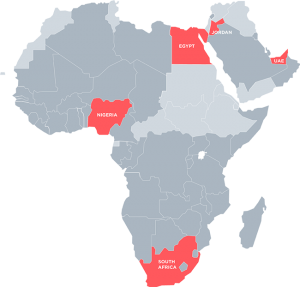
All the hegemons are in disarray at home, one way or the other
How can the AU’s role be enhanced to make the continental body more effective in preventing conflicts and ensuring peace and security across Africa?
Ensuring peace and security in Africa is one of the top priorities of the AU. This fact led to an ambitious goal by member states to collectively silence the guns by 2020. As I mentioned earlier, Africa is far from silencing the guns in general, but we are witnessing the end of inter-state conflicts. This is a significant achievement for the continent.
Nonetheless, Africa continues to face numerous challenges to its stability. Terrorism, though not limited to Africa, is one of the major causes of insecurity on the continent. Libya, Somalia, the Sahel and the Lake Chad Basin, and, increasingly, new territories such as Mozambique’s Cabo Delgado are destabilised by violent extremists. The AU continues to support these member states, including in garnering international support in the fight against terrorist groups.
The root causes of violent extremism as well as other crises witnessed across the continent are increasingly related to internal socio-political and economic governance deficits. The AU has registered success in resolving a number of internal political crisis situations with the potential to lead to instability, such as our support to Sudan’s political transition. We also tried something similar in the Central African Republic and other member states, with limited success. On the basis of the subsidiarity principle, our regional economic communities have been very active in some conflicts, such as South Sudan and Mali.
We managed to successfully relaunch the AU Peace Fund in 2018, which was initially established in 1993. The contribution of member states to the Peace Fund has reached US$200 million. This has enhanced the ability of the continent to achieve some of its peace and security priorities through its own means. We hope to be able to scale this contribution in the coming years, given the growing conviction among member states of the need to self-finance a number of peace and security initiatives.
Despite these successes, there are several challenges that limit the ability of the AU in responding to crisis situations. For example, it is obvious that democracy and constitutionalism in Africa are facing great setbacks. We have the African Charter on Democracy, Elections and Governance that guides member states in this regard. However, I am of the view that these provisions continue to be disregarded by some member states for various reasons. Elections, meant to serve as the basis for the peaceful transfer of power, have in some cases become the cause of instability on the continent.
Africa is at a crossroads and should seriously consider why our continental provisions for democracy, elections and governance are blatantly disregarded
Africa is as a result at a crossroads and should seriously consider why our continental provisions for democracy, elections and governance are blatantly disregarded. We cannot go on denying the severity of the issue as a continent. We have seen an increase in mass protests, and unless we manage to respond to the demands of our citizens, we will continue to witness military coups, rebellions, uprisings and revolutions. African leadership should respond to these demands for reform. Unless we address these issues, it will not be possible to silence the guns in Africa.
At the AU, we have tried to ensure that countries respect their constitutions as related to elections, term limits and the peaceful transfer of power. We try to convince member states to respect the provisions of their constitutions and their commitments based on the model of governance they have chosen for themselves. Beyond that, the powers of the AUC and the chairperson are quite limited. This is all we can do. Members are sovereign states and will not abide any interference from outside parties. Our role is therefore limited to that of advisers and counsellors.
The time has come to interrogate the rules of engagement of the AU. We should collectively review whether we have chosen the most appropriate models. We should also ask whether our governance models correspond to our realities and the expectations of our citizens.
As part of my vision for the next term, I have proposed to have intellectual and policy debates on these issues with political authorities, academia and civil society. This is in the hope of coming up with the best democratic model for the continent, and mechanisms that will allow the AU to deliver on its mandate related to the prevention and resolution of crisis situations.
I strongly believe that good governance is the best method to prevent crises. Good economic, democratic and electoral governance and more concrete results in fighting poverty, corruption and exclusion are the best way to prevent crises throughout our continent.
How has the COVID-19 pandemic impacted the work of the commission and how will it address that in 2021?
COVID-19 is a global disaster that has negatively impacted all countries around the world. Africa is part of that world. Africa was comparatively less affected by the pandemic as compared to other continents. Despite this fact, around 90 000 people have lost their lives and more than 3.5 million have been infected.
Even though Africa is facing numerous challenges, the continent has shown remarkable resilience and a spirit of solidarity. I should commend here the role played by AU Chairperson President Cyril Ramaphosa for the leadership he has shown in these difficult circumstances. The Africa Centres for Disease Control and Prevention and the African Vaccine Acquisition Task Team also continue to play a crucial role in responding to the pandemic. I also have to mention the leadership of our Department of Social Affairs in implementing the African strategy against COVID-19.
The current challenge is to ensure that Africa will not remain behind in acquiring the necessary number of vaccine doses to reach 60% of the population, required for collective immunity. We put in place a COVID solidarity fund of around US$50 million. Under the global COVAX initiative, led by the World Health Organization, Africa is assured to receive vaccines for 20% of our population. The task team has negotiated an additional 270 million vaccine doses to be delivered in 2021. This will enable us to vaccinate 36% of the population. We will continue to mobilise our resources to secure additional vaccines for Africa.
Without a doubt the work of the AU has suffered under these circumstances. We hope to redouble our efforts with a highly competent and experienced leadership that will be elected in February during the summit. We hope to achieve continental goals despite the challenges posed by the pandemic, for our collective future.

